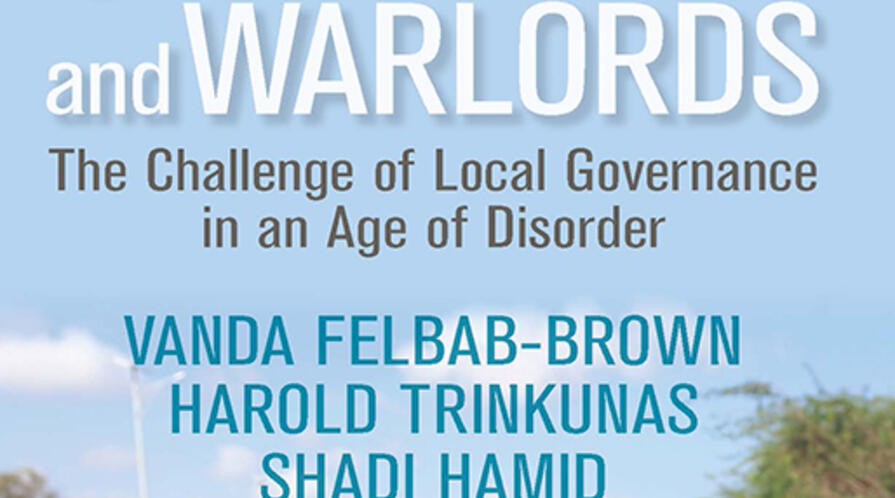New Trinkunas book examines the role of armed nonstate actors in local governance

The sovereign state is frequently held up as the legitimate source of domestic order and an important provider of public goods in any society, regardless of regime type. In Militants, Criminals, and Warlords - The Challenge of Local Governance in an Age of Disorder, however, authors Vanda Felbab-Brown, Harold Trinkunas, and Shadi Hamid explain that Hezbollah and the Islamic State in the Middle East, pirate clans in Africa, criminal gangs in South America, and militias in Southeast Asia are examples where nonstate actors have controlled local territory and have delivered public goods that the state cannot or will not provide.
This book takes the reader to territories where state governance has broken down—or never really existed. In these places, the vacuum has frequently been filled by armed nonstate actors—local gangs, militias, or warlords—some with ideological or political agendas and others focused primarily on economic gain. In certain cases, these actors have developed substantial support among local populations and have built their own enduring institutions at the expense of the de jure sovereign, the state. The authors suggest that the international community has more than a passing interest in this phenomena, in part because of the risk of spillover effects from crime and terrorism, but also because territories where the state is weak or absent can pose threats to international security.
The book concludes with policy recommendations for how the international community might best respond to local orders dominated by armed nonstate actors. In many cases, it argues that outsiders have too often taken a short-term approach—accepting unsavory local actors out of expediency—at the price of long-term instability and enduring state weakness.
Text courtesy of Brookings Press. To read more on Militants, Criminals, and Warlords - The Challenge of Local Governance in an Age of Disorder, click here.
